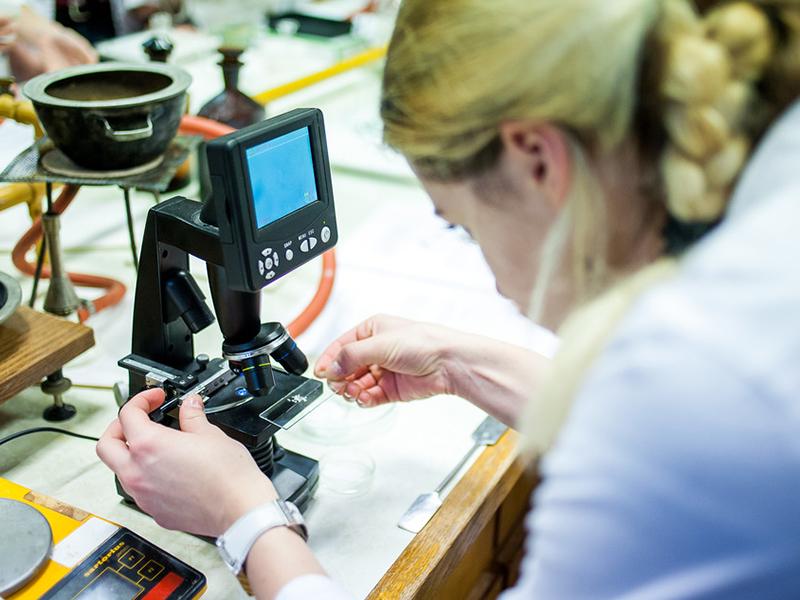
Partnership work as a catalyst for upskilling in key employment sectors
Transforming assessment of skills development in critical sectors
Professional experience and placements are an integral part of education and training in some sectors, in particular medicine and healthcare. But how students’ progress or level of competence when working in clinical settings and placements can be recorded and monitored in real time poses a continuing challenge for higher education institutions and employers.
So, a team from Chester Business School set out to design a healthcare practice assessment and placement quality monitoring tool that could help meet this challenge.
The result was the online Practice Assessment Record and Evaluation (PARE) platform, which provides contemporaneous access to a learner’s practice assessment documentation for placement and university educators with built-in placement, capacity and quality monitoring functions.
In 2022-23, the business school engaged with its largest cohort, totalling 92,643 university students and staff, who were supported and supervised by 163,961 healthcare professionals from across the NHS and other healthcare sectors.
PARE has become integral to supporting healthcare and educational partnerships, streamlining the placement experience for students and academic staff. The platform’s innovative approach to fostering multidisciplinary collaboration has played a key role in Chester Business School’s shortlisting for the THE Awards Business School of the Year 2024.
People-first approach
Health professionals are, by their nature, more interested in people than IT. When developing this online practice assessment process, we kept the context and lived experience of end users, such as busy clinical educators and pressured learners, at the forefront of our minds.
This focus on users as professionals within their working context is crucial to any such innovative online development; the platform has to be user-friendly and well designed to maximise usage, relevance and efficacy.
- Spotlight guide: Getting students workplace ready
- THE Awards 2024 spotlight: learn from the best in UK and Irish higher education
- Spotlight guide: Why knowledge exchange is important for universities
The unique thing about PARE is that the student healthcare practitioner, the placement mentor and the university can all engage easily in a real-time, productive and meaningful online coaching relationship within the context of straining NHS and social care sectors.
Because the developers of PARE are former practitioners themselves, they have been able to apply this lived experience to its mechanics. This proved essential in developing successful online assessment tools that reduce perceptions of workload and stress.
The lessons from and principles of this work are relevant to any subject with practice-based elements.
Six tips for success in supporting practice-based education
- Build and continually facilitate collaboration between the institution and the local community or relevant industry sector. In this case, that is the NHS and private, voluntary and independent healthcare providers and their supply chains. This ecosystem can be developed through the creation of i) user steering groups, made up of both university and partner organisation representatives when developing new tools and services, and then ii) user working groups to facilitate user feedback and a continual improvement loop once the tool or service is in use. This engagement with users pre- and post- development is essential to maintain the efficacy of a service.
- Use the collaborative ecosystem to promote knowledge exchange between large and small organisations to encourage adoption of best practice across the sector; consider also how this can be shaped to contribute to your Knowledge Exchange Framework (KEF) ambitions. For example, when developing an online preceptorship tool, the partnership between a large NHS foundation trust and a small homecare provider facilitated a level of dialogue and access to expertise previously unavailable to the independent care provider.
- Champion the collaboration and the resulting benefits with potential funding bodies, in our case NHS England, to draw in financial support for best practice initiatives. While for us this refers to built-in practice assessment quality monitoring processes that can be used to benchmark organisations, it could, of course, extend to research projects and impact studies.
- Focus on ethical business practice. Place the many benefits of any university-industry or public sector collaboration and shared cost savings for all partners above maximising profit. For us, this means remembering that we are focused on public service and supporting the well-being of our wider community. Your reward as an institution will be superb business intelligence and a flood of product development initiatives direct from the users to improve your product or service.
- Design resulting online tools, or any digital product for the public sector, with the multi-generational nature of its workforce in mind. Users will range from digitally native young students to the more seasoned digital immigrants acting as supervisors, many of whom remain ill at ease in transitioning to paperless working.
- Remember that your partners are very busy. Any solutions you develop need to be simple, fast, effective and clearly worth engaging in compared with their current options.
University business schools are uniquely positioned to create sustained and trusting collaborative relationships with the public and private sectors. In our case, this has enabled us to promote standardisation of best practice assessment techniques for the NHS, which are key to successfully supporting the next generation of highly skilled healthcare professionals.
Our regional business engagements and commitment to PARE exemplify Chester Business School‘s commitment to long-term sustainable economic growth projects. We want to be a catalyst for progress, enabling the NHS to efficiently invest in skills and practice development in an era of financial challenge.
Mike Brownsell is head of PARE and associate professor, and Kirstie Simpson is dean and associate professor, both at Chester Business School, University of Chester.
Chester Business School was named Business School of the Year at the Times Higher Education Awards 2024 #THEAwards. A full list of shortlisted candidates can be found here.
If you would like advice and insight from academics and university staff delivered direct to your inbox each week, sign up for the Campus newsletter.




